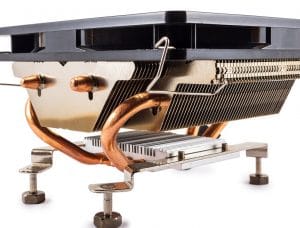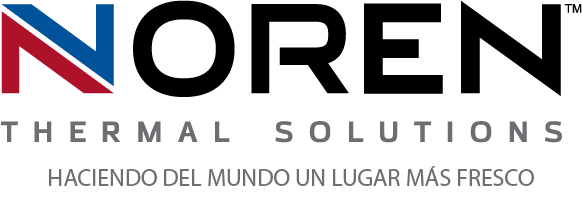 Companies that have operated for decades may remember a time when electrical cooling was cumbersome just to contemplate. Implementing and maintaining solutions like air conditioners and air compressors could prove costly and time-consuming, but it was necessary to accommodate the technology that was starting to take over operations in most industries. Today, however, electrical thermal management means something much different. With more advanced, eco-friendly, and adaptable solutions, such as heat exchangers, electrical cooling has become a much more efficient process for most modern companies.
Companies that have operated for decades may remember a time when electrical cooling was cumbersome just to contemplate. Implementing and maintaining solutions like air conditioners and air compressors could prove costly and time-consuming, but it was necessary to accommodate the technology that was starting to take over operations in most industries. Today, however, electrical thermal management means something much different. With more advanced, eco-friendly, and adaptable solutions, such as heat exchangers, electrical cooling has become a much more efficient process for most modern companies.
Chilling air isn’t always necessary anymore
The biggest change in electrical cooling over the last several decades has been the methods used to prevent electrical overheating. Traditional cooling units were attached to electrical enclosures in order to circulate chilled air throughout their interiors. This prevents the waste heat that’s generated within the enclosure from remaining long enough to cause damage to the components housed within it. Now, however, solutions like heat exchangers and other custom thermal solutions can provide more streamlined cooling by absorbing and transferring the waste heat, rather than attempting to lower its temperature.
Energy consumption goes a longer way
The major change in thermal management concepts, from chilling air to transferring heat, has led to the major advantages that companies have experienced since they first began implementing heat exchangers. Most importantly, those include the reduced need for energy that companies have been able to enjoy without having to rely on numerous air conditioning or air compressing units. Energy consumption can easily become one of a company’s biggest recurring expenditures, and because heat exchangers use more natural heat transfer processes, they’ve helped many companies significantly lower that cost.
Demanding applications use simplified cooling
The more streamlined and natural heat transfer methods that heat exchangers utilize – such as natural/forced convection, conduction, and phase-change cooling – have proven excellent solutions for common electrical cooling concerns. For instance, electrical cabinet cooling is one of the most frequent needs for companies in a wide range of companies. However, heat exchangers have also proven their worth in many more demanding applications, including those that include operations in hazardous locations, or that involve high-performance computing technologies. Their simplified cooling methods are not only more cost-efficient and manageable, but are also easier to customize to meet the needs of increasingly more innovative applications.
For more information about the advanced state of modern thermal management, call Noren Thermal Solutions in Taylor, TX, at 866-936-6736.







